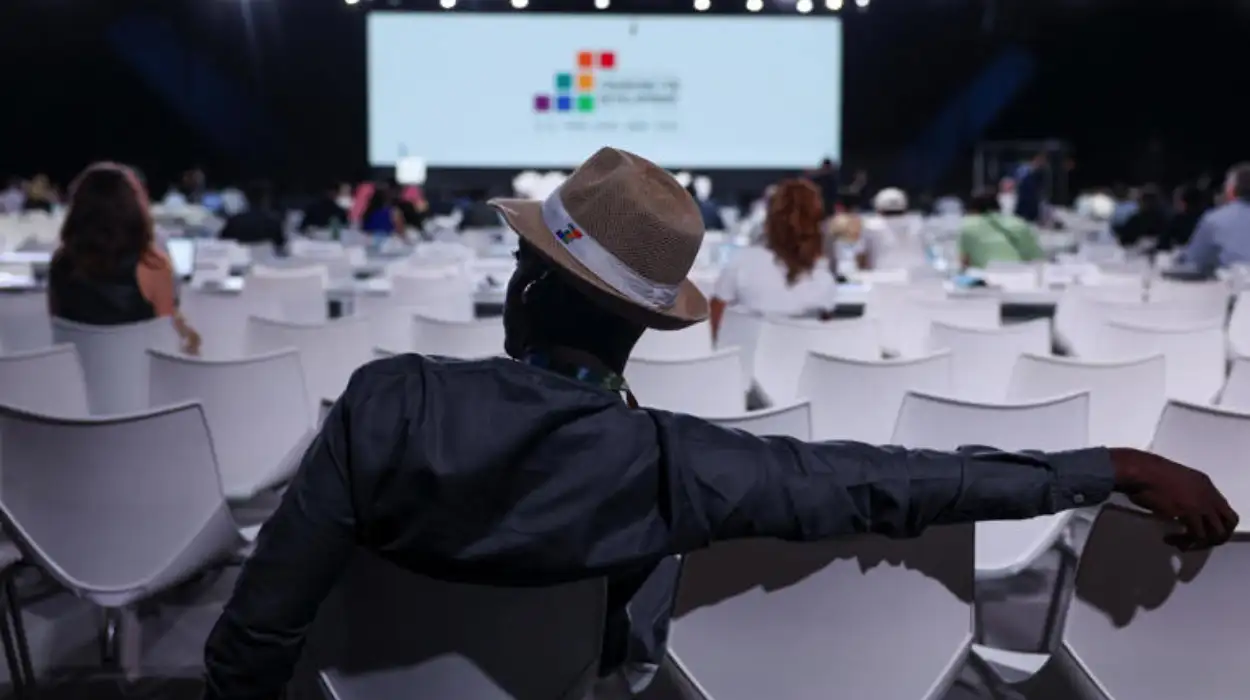UK (Parliament Politics Magazine) – The UK faces criticism for cutting foreign aid and sending only a minister to a major UN development finance summit, raising questions about its commitment.
As reported by The Independent, critics say Britain’s reduced aid funding and limited senior presence at a global summit contradict its claims of aiding low-income countries.
How did the FfD4 summit aim to tackle debt burdens in developing countries?
At the fourth Financing for Development Conference in Seville, Spain, delegates gather this week to find solutions addressing the ongoing challenge of securing funds for poorer nations.
In April, 32 countries allocated more funds to debt repayments than to healthcare, while 25 prioritised debt payments over education, prompting activists to call for urgent reforms.
Around 50 world leaders are expected at FfD4, including:
- Emmanuel Macron, President of France
- Mark Carney, former Governor of the Bank of Canada
- Ursula von der Leyen, President of the European Commission
However, the UK has only sent Baroness Chapman, the international development minister. Her attendance follows the UK’s cut of its foreign aid budget from 0.5% to 0.3% of GNI, expected to reduce aid by £6.2 billion by 2025.
What did Lydia Darby say about the UK’s low-level attendance at FfD4?
Lydia Darby, a senior policy advisor at Save the Children, said,
“A level of ambition from the UK government would have been demonstrated clearly by sending higher-level participation, such as the prime minister or Foreign Secretary.”
She highlighted positive language on international tax cooperation and a new intergovernmental debt process.
Ms Darby added,
“The document is an important step with plenty to build on in the months and years ahead”,
yet it does not fully meet
“the transformative ambition that civil society and vulnerable communities worldwide had called for.”
What did Hannah Bond say about the UK’s “hypocritical” aid cuts?
Hannah Bond, leading ActionAid UK, condemned the UK government for calling for “fair finance” while reducing its commitment to overseas aid.
She said,
“If the UK truly cares about fair finance, it must honour its overseas aid commitments, tackle unfair debts, and pay its fair share in addressing the climate crisis. Without this, talk of fair finance is nothing more than empty PR.”
What did Alex Farley say about the UK’s aid cuts and global credibility?
Alex Farley of advocacy group Bond said, “It is impossible” for Britain to meet existing promises, deliver on humanitarian crises, and tackle climate change.
He added,
“Let alone undo the damage these cuts have done to our reputation and credibility with countries.”
What did Michael Jacobs say about UK aid cuts?
Michael Jacobs, from the think tank ODI, said,
“It would be nice to hear the government expressing regret for its cuts to the aid budget, rather than blithely claiming that they are somehow doing developing countries a favour.”
He described the idea that private sector funds can replace public aid as “silly at best and disingenuous at worst.”
Mr Jacobs explained that the private sector’s focus is on financial returns, while many aid projects, such as healthcare and climate adaptation, remain non-investable.
What did Catherine Pettengell say about the UK’s lack of support for developing countries?
Catherine Pettengell, executive director of Climate Action Network, said the UK failed to adequately back developing countries’ demands for fair debt relief, tax reform, collaboration, and climate funding before the conference.
She added,
“It’s a crushing blow that only compounds the recent UK aid cuts.”
Why did the US quit the sustainable development talks?
The UK and EU have been accused of diluting prominent items for poorer countries.
Those nations showed stronger engagement, while the US withdrew over a dispute about removing “sustainable development” from the text.

